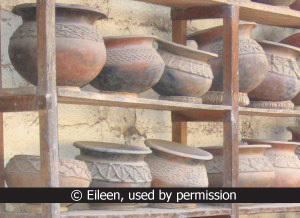You’ve probably heard in the news about the massive skyscraper fire that erupted in Dubai on New Year’s Eve. A 1,000-foot 63-story hotel was engulfed in flames so large that they dwarfed the fireworks display going on nearby. Hundreds were inside, but no one died.
You may not have heard of the Winecoff Hotel, a 15-story hotel located in downtown Atlanta, Georgia. It burned in 1946, killing 119 people.
The difference between the two outcomes could be attributed largely to the fact that the Dubai hotel was equipped with smoke detectors, fire alarms, and fire suppression systems, while the Winecoff had none.
As BJU Press’s Physical Science textbook discusses, Henri Becquerel discovered nuclear radiation in 1896. His discovery led to a huge number of inventions and innovations that improved the quality of human lives. One of those inventions was the smoke detector, which became widely available in the 1950s. Common smoke detectors use nuclear decay in the process of sensing smoke. Becquerel’s discovery has helped save thousands, if not millions, of lives.
 What does this event have to do with teaching science?
What does this event have to do with teaching science?
It involves interest and motivation. You’ve just been introduced to a major science concept and probably want to know more. Your teen will too. It’s interesting for a couple of reasons.
First, the example about the hotel fires links a science concept to a current event and then shows how the two relate, taking a normally dry lesson and making it relevant and interesting by giving it purpose. A science lesson using this example would then go on to include a deeper study of nuclear radiation and decay, but now your teen would be approaching the topic with an understanding of its value.
In addition, this example makes it clear that God has given us a powerful tool in science, one that enables us to serve Him by carrying out His commands to love our neighbors by improving the lives of others around us. Motivation to learn comes from a desire to serve in this way.
Just about any scientific concept can be made more accessible by relating it to something that interests your student. The end result is that you as the teacher get to be creative and your teen isn’t bored with memorizing endless facts without purpose.
Here are some steps to get you started.
- Find a current (or historical) event or problem that was changed or solved using science.
- Ask your student to explain what role science played in the event. (Doing so encourages his critical thinking skills.)
- Ask your student to research why science worked that way in relation to the event and to explain the associated concepts that influenced it.
- Finish the lesson with a discussion of why using science in this way would please God.
 Sure enough. Only a few seconds after I started my wheel, I realized my clay had a mind of its own. I was trying to focus on pressing the cone tip down to become the base of my pot, but my lump of clay seemed intent on sliding out from under my hands. Two or three times in the process of forming the pot, I felt that obstinate clay go slightly airborne, inching its way off the wheel, and I had to exert extra pressure to bring it back. Why does clay act that way?
Sure enough. Only a few seconds after I started my wheel, I realized my clay had a mind of its own. I was trying to focus on pressing the cone tip down to become the base of my pot, but my lump of clay seemed intent on sliding out from under my hands. Two or three times in the process of forming the pot, I felt that obstinate clay go slightly airborne, inching its way off the wheel, and I had to exert extra pressure to bring it back. Why does clay act that way?